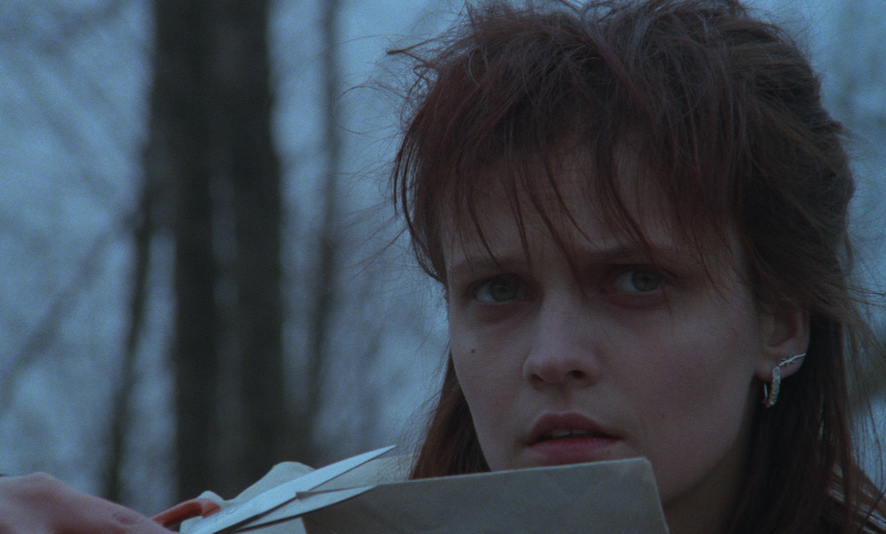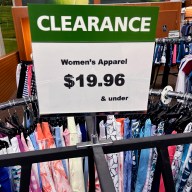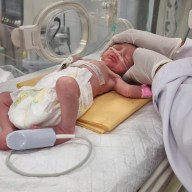‘The Dekalog’ Everyone in “The Dekalog” is guilty. They kill, they steal, they cheat, they covet, they blaspheme, they have other gods, they create idols, they fail to honor mother or father, they bear false witness and they certainly don’t keep the Sabbath Day holy. Over 10 episodes and 10 hours, each inspired by one (or, in some cases, it can be agued more) of the Ten Commandments, the dozens of people bopping around Krzysztof Kieslowski’s miniseries-movie — first aired on Polish television in 1989 and often screened as a super-sized, multi-day movie — sin like it’s going out of style. But they’re not judged. Even the loner who whimsically murders a cabbie for no reason, in the series’ famous fifth episode, is viewed with peerless compassion. It’s this compassion that towers over “The Dekalog,” even moreso than its insane ambition. If Kieslowski and cowriter Krzystof Piesiewicz, being the series’ creators, are gods, they’re benevolent ones, unfailingly empathetic to people who can’t help but fail at being perfect. In episode eight, a kindly (but still flawed) professor asks her ethics class to consider a real-life case. But they’re not to pass judgment. “Try to understand her,” she implores them. She might as well be the filmmakers’ mouthpiece. Their film asks you to understand, not pass sentence. RELATED: Fall Movie Preview: The 5 types of films you meet in autumn “The Dekalog” comprises 10 moral tales, as Eric Rohmer would put it, each a concise and precise fit of high drama. The first sets the scene: A father, of the agnostic-atheist stripe, has taught his young son to be a curious lover of science. This certainty, this rejection of a higher power, will come to bite them in the ass, and how. But this isn’t some TBN propaganda piece; every shot beams with humanism, and not the bland kind. Other episodes will have but traces of religiosity, if at all, and will go further into asking questions, not answering them. There’s the one (episode three) about a couple reuniting years after an affair, like a grungier version of “Before Sunset.” There’s the one (episode six) about the snooper flummoxed when the woman he peeps on finds out his secret and becomes interested in him. There’s the one (episode seven) where a lonely woman “kidnaps” the young daughter she legally bequeathed to her parents at a young age. This grim and heavy though often transcendent ten-tet ends, surprisingly, on a relatively lighter note. Our many hours and hard work are rewarded with a black comedy about brothers trying to sell their late father’s legendary stamp collection. It’s not just a laugh that it goes out with angry rock-‘n’-roll; it makes the world of the film seem infinite. Some of the stories are more earth-quaking than others, but no matter the “sin,” Kieslowski and Piesiewicz aren’t out to answer questions. They just want to pose them, and keep posing them. They’re harsh questions, too. The fourth episode, maybe the series’ height, finds a young woman who learns the man she thought was her father is not. They’re very close. So is it love? And if so, which kind? Did he think of her when she had boyfriends? Did she think of him when she was in bed with others? Should they go next-level? “The Dekalog” will “go there,” but not in an unsavory or cheap way. It exists to probe into the matters we’re loath to discuss, to keep burrowing for truths that remain elusive no matter how deep we go. “The Dekalog” could be classified as another type of film: the city symphony. Each episode, minus a journey here and there, takes place in Warsaw, amongst the denizens of the same apartment complex. It can feel like the art house world cinema equivalent of “The Naked City.” (“There are, like, two million stories in the unhappy city; this has been one of them.”) Kieslowski and Piesiewicz made the film in part as a response to a turbulent time in Warsaw, when people had given up hope, when confusion reigned. It’s a city of sadness, filled with lonely people forced to connect with others, or loved ones forced to finally address elephants in rooms. It’s through interaction that we develop ideas, get outside ourselves, and achieve breakthroughs. Sometimes they’re helpful epiphanies; other times they’re the opposite. Sometimes it’s inconclusive, life just puttering on. Leaving “The Dekalog” and returning to your own city, you can see Warsaw of the late ’80s might be not so different. We don’t mean that you realize that people are people, too, or something banal. It trains you to empathize with other people, to understand decisions or personality types, even ones that might run against your own beliefs. It’s a series for any age, but particularly for ours, an age that might have made the late Kieslowski want to get back to work, cranking out a whole new batch of films. Or maybe “The Dekalog” will suffice as is — a masterwork relevant so long as the species lives on. “The Dekalog” runs through Sept. 6 at the IFC Center in New York. Visit the site for tickets and showtimes.
Director: Krzysztof Kieslowski
Stars: A cast of 100s
Rating: NR
5 (out of 5) Globes
‘The Dekalog’ returns to teach us about compassion

Janus Films
Follow Matt Prigge on Twitter @mattprigge


















